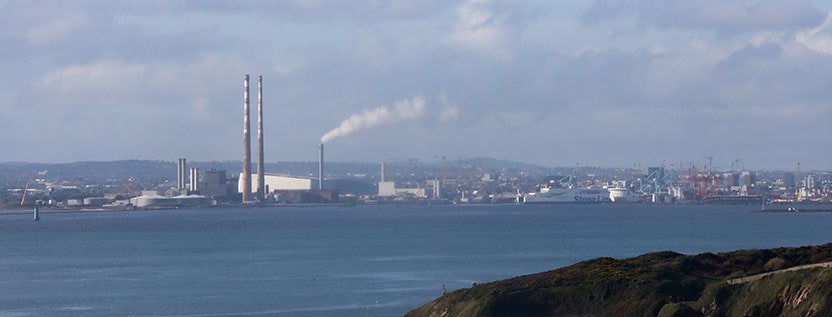
Emissions lowest in three decades in 2023 – EPA
The Environmental Protection Agency (EPA) says that Ireland is still “well off track” in terms of meeting legally binding EU and national targets for greenhouse-gas emissions
This is despite what the EPA describes as a “significant” drop of 6.8% in greenhouse-gas emissions last year compared with 2022, to 55 million tonnes.
This was the lowest that emissions have been in three decades, with reductions in almost all sectors.
Under the Climate Action and Low Carbon Development (Amendment) Act 2021, emissions must fall by 51% from the 2018 baseline figure.
‘Extremely challenging’
According to the EPA, emissions in 2023 were 7.8% below 2018 levels, and Ireland now needs to achieve “an extremely challenging” annual reduction of 8.3% for each of the years 2024 and 2025 if it is to stay within the first Carbon Budget.
The agency’s assessment shows that Ireland complied with its obligations for 2021-23 under the EU Effort Sharing Regulation (ESR), but emissions were still only just over 10% below 2005 levels last year – well short of a commitment to a 42% cut by 2030.
“Ireland’s greenhouse gas emissions in 2023 were at their lowest level in over three decades, as a result of the largest reduction in emissions outside of recession,” said Laura Burke (EPA director general).
“These are significant findings that signal the impact of climate action and decarbonisation measures across Ireland’s economy and society. We see the impact of more renewables and interconnection powering electricity, less fossil fuel use in home heating, reduced nitrogen fertiliser uses in agriculture, and more biofuel in transport,” she added.
Big drop in power emissions
A breakdown of the figures shows that power-generation emissions fell by 21.6% last year, while agriculture was down 4.6%.
Transport emissions crept up by 0.3%, however, with a 3% increase in the vehicle fleet partly offset by an increase in electric vehicles and the usage of biofuels.
Residential emissions dropped by 7% – the second substantial annual reduction in succession. High fuel prices and a milder winter were significant contributors to the reduction in fossil-fuel use, in addition to the introduction of nationwide solid-fuel regulations.